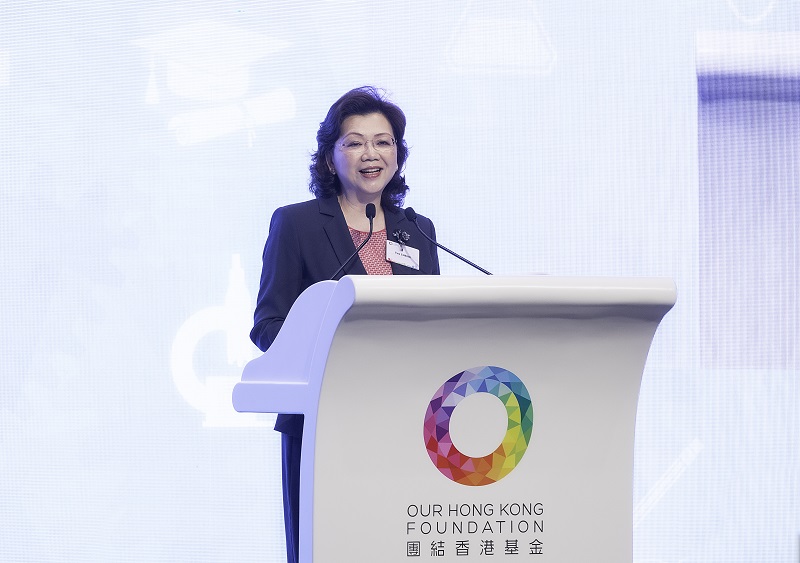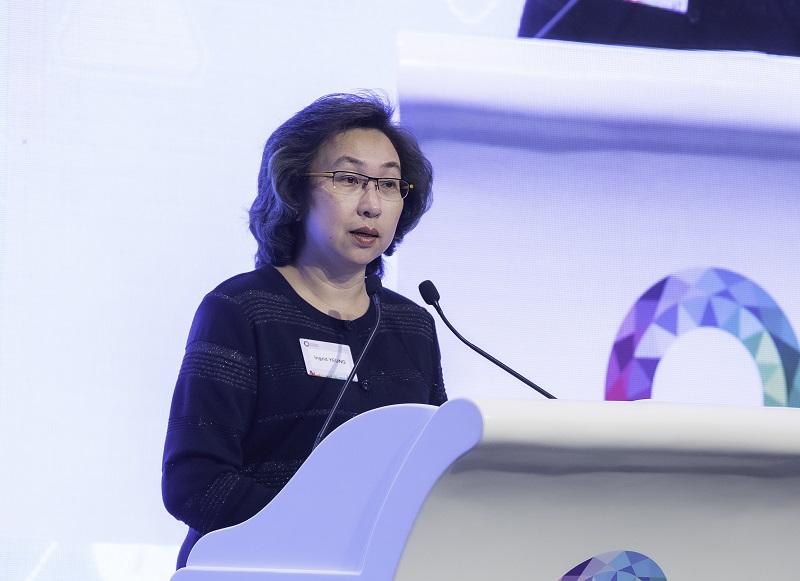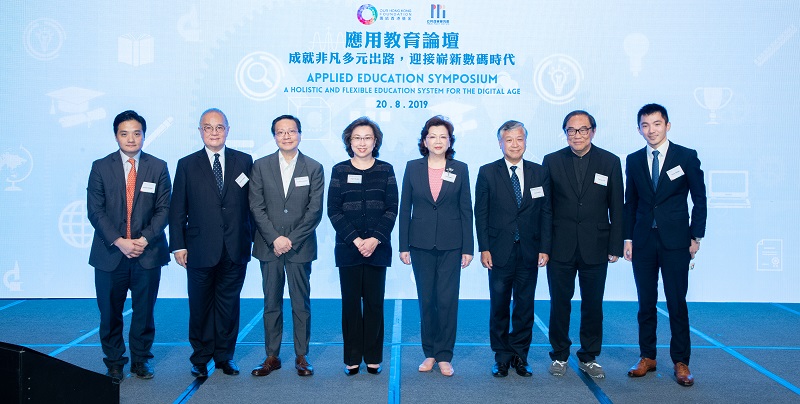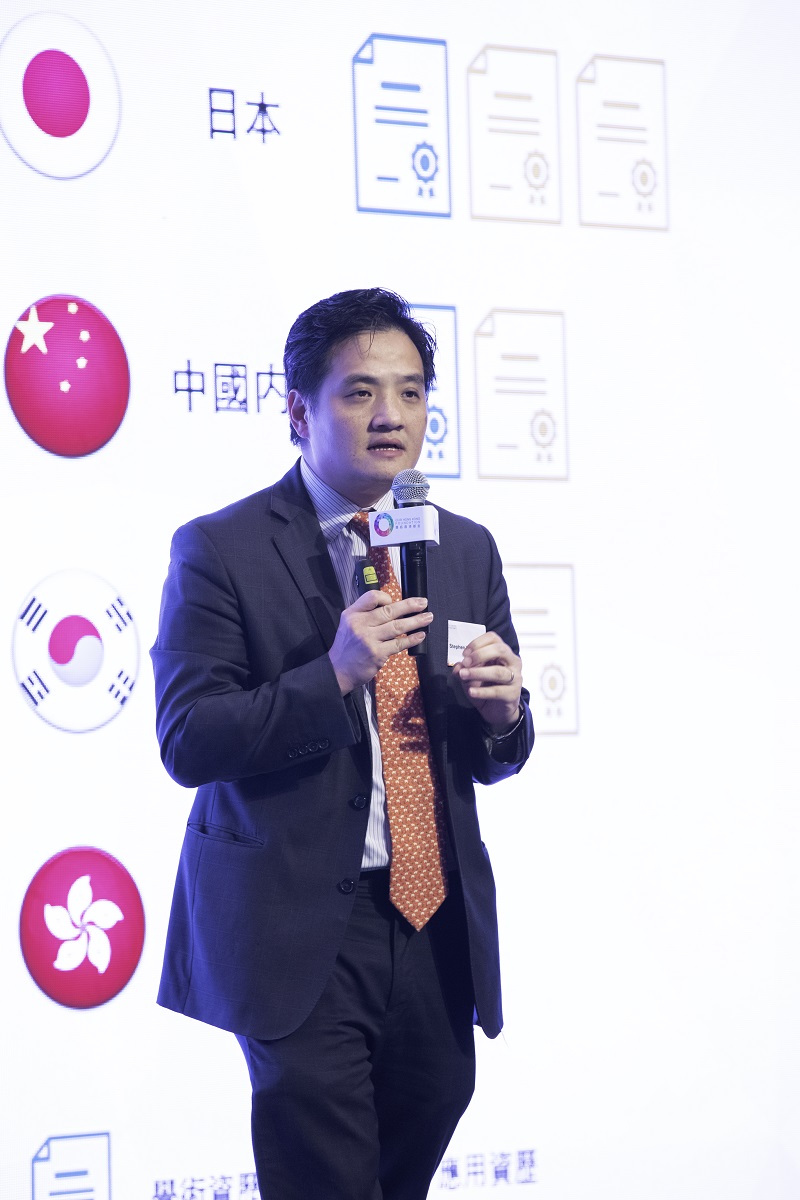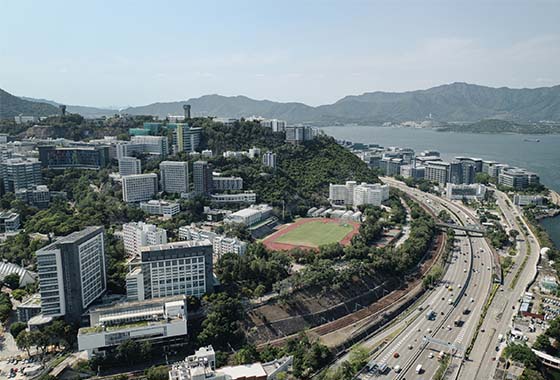First Education Research Report
Our Hong Kong Foundation Releases its first Education Research Report on “Applied Education: A Holistic and Flexible Education System for the Digital Age”
(20 August, 2019, Hong Kong) Our Hong Kong Foundation (OHKF) releases its inaugural education research report titled “Applied Education: A Holistic and Flexible Education System for the Digital Age”. A thriving and sustainable education ecosystem should embrace learners’ diversity, unleash their potentials and prepare them for the future workplace. OHKF advocates to build a comprehensive Applied Education system, which can guide the youth to explore their passions, motivate them to learn and fulfil evolving social needs.
Applied Education is Vital for Nurturing Diverse Talents
Hong Kong’s examination-centric system hails academically capable students. Imbued with cultural biases, parents and students are under the pressure to obtain an academic degree, viewing it as the only path. However, international counterparts have established multiple study pathways to nurture diverse talents, for instance, arts, cookery, computer programming, water/electrical engineering and so on, to provide adequate opportunities for applied talents. The combined upper secondary participation in Applied Education (between 10-15%) is far behind the Organisation for Economic Co-operation and Development (OECD) average (42%). Now is the time to review the education system to provide multiple pathways for diverse talents.
Empowering the Youth to Prepare for a Bright Future
Talents from different socio-economic backgrounds should be provided with equal learning opportunities and adequate resources, thereby creating a level playing field. However, in Hong Kong, resources are heavily inclined towards high achievers in examinations, whilst others in greater need receive less support. Each year, around one-third of the HKDSE candidates qualify for direct entry into university. The annual cost of a UGC-funded degree programme is close to three times higher than that of a self-financing programme.
As automation and digitalisation cause traditional jobs to gradually disappear, an estimated 65% of primary school entrants will end up in new job types that do not exist today. Education should embrace innovation, learners’ diversity and unleash potentials of every child to prepare talents for the future.
This report leverages on Applied Education to lay the foundation for a new era of an all-encompassing ecosystem with six-pronged policy recommendations as follows:
1. Developing industry-led dual education which integrates theory and practice
This report recommends strengthening both top-down governance through inter-bureau efforts under the Human Resources Planning Commission and bottom-up involvement through Industry Training Advisory Councils, to maximise the influence of industry expertise in talent development. Inter-bureau efforts link socio-economic, manpower and educational planning to address future social needs.
2. Establishing an integrated funding scheme to enhance long-term competitiveness of self-financing institutions
Current funding schemes for students in self-financing institutions could be integrated and enhanced to address the imbalance of resources between universities funded by the University Grants Council (UGC) and self-financing institutions.
3. Introducing a flexible admission system for diverse talents
Young talents should be admitted to applied degrees under a flexible and inclusive system that not only considers public examination results, but also prioritises aptitude and relevant professional qualifications as part of the admission criteria.
4. Completing the applied progression pathway through the Higher Diploma
As the sub-degree system continues to develop, the Higher Diploma should be strengthened as a progression pathway towards applied degrees, further differentiating it from the Associate Degree. Having a complete progression pathway attracts interests from young people who wish to pursue a non-academic path.
5. Building an integrated Applied Education ecosystem to encourage students’ participation
OHKF recommends a broadened Applied Education functional committee under the Curriculum Development Council, and an intermediary to enhance the existing Business-School Partnership Programme. Applied Learning courses should also be revamped to be on par with other academic subjects.
6. Strengthening career exploration in secondary schools to facilitate students’ future planning
OHKF proposes an institutionalised career exploration programme since junior secondary education, with designated teaching hours. Industry exposure should be incorporated as an integral part of career education. This report further suggests strengthening parent involvement and equipping career teachers through industry training placements to enhance their capacity in guiding students to make informed choices.
Mr Stephen Wong, Deputy Executive Director and Head of Public Policy Institute, OHKF commented, “We believe that education is the best investment for future development and innovation. A top-notch and forward-looking education system that attends to learners’ needs and fosters diverse talents is required.”
Mr Victor Kwok, Head of Education & Youth, OHKF noted, “We recommend the Government to strengthen the financial support for self-financing institutions so as to offer programmes with higher quality and competitiveness.”
Research Report “Applied Education: A Holistic and Flexible Education System for the Digital Age”
Chinese: http://bit.ly/2KHfS9a
English: http://bit.ly/2Zf7yWk
